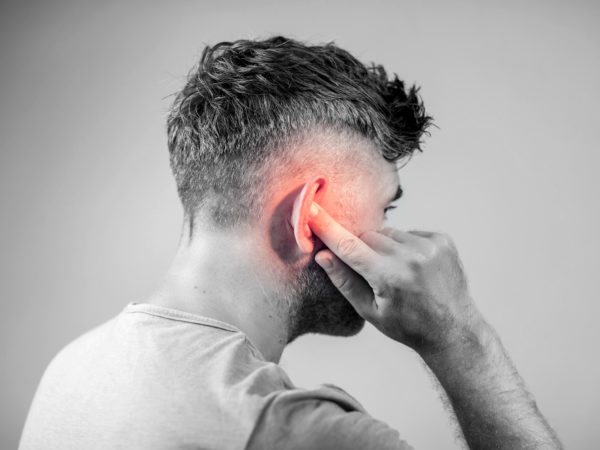
Disabled veterans who are suffering from hearing loss and tinnitus due to their time in military service are eligible for VA disability benefits. A former service member’s benefits are determined by their compensation ratings, which is obtained once they file a VA disability claim. Over 1.5 million veterans have filed a claim for tinnitus.
What is Tinnitus?
The definition of tinnitus is the perception of hissing, popping, or ringing in the ears or head when no other audible sounds are present. For some people, tinnitus is merely an annoyance. For others, it is much more troublesome.
Tinnitus is the most filed disability for veterans benefits. This condition affects at least one in every ten American adults. Veterans have higher rates of tinnitus than the general public due to unique exposures. Sounds like gunfire, machinery, and aircraft have connections to causing this condition.
What to do About Tinnitus?
In most cases, there is no specific cure for tinnitus. Furthermore, research suggests that it can be made worse by symptoms such as stress, anxiety, or fatigue.
Your doctor may find a specific cause to your condition. When speaking to a medical professional it’s important to describe the noise as best as possible. Typical descriptions include:
- High-pitched ringing in the ear: Most people report ringing in the ears as what they hear. This could be caused by exposure to loud noises or medications.
- Clicking: If you’re hearing clicking sounds, then it could be that muscle contractions in and around your ear are causing the issue.
- Humming, Rushing and Pulsing: You may hear this when you change position, exercise, stand up or lie down. This could be related to blood vessel (vascular) causes, such as high blood pressure.
- Low-pitched ringing: This type of tinnitus sounds could be related to ear canal blockages or stiff inner ear bones.
Knowing what type of tinnitus sound you’re hearing may help determine possible changes to your life. These changes may help reduce the severity of your condition. Like any condition, diagnoses may require X-rays, tests, and laboratory work.
There are also treatment methods like relaxation and concentration exercise. These help control circulation throughout the body and control muscle movement which can provide relief from the intensity of tinnitus in some patients.
Using white noise to mask sound is another method that may help to reduce tinnitus.
VA Disability Claims for Tinnitus
The claims process for VA disability compensation involves getting a medical diagnosis. Unfortunately, the maximum rating you can get for regular or recurrent tinnitus, through diagnostic code 6260, is 10%.
It doesn’t matter how bad it is or whether it the tinnitus presents itself in one or both ears. Although, you can have ratings for more than once condition such as tinnitus in addition to psychiatric conditions or a traumatic brain injury.
Proposed Changes For Tinnitus Ratings
In February 2022, the VA proposed changes to how they rate auditory conditions, including tinnitus. The proposal would not allow tinnitus to be rated as its own condition. Instead it would be evaluated as a symptom of an underlying condition creating the issue.
This means veterans diagnosed with service-related tinnitus would have to have to link in to another service-related disability to receive their benefits. These changes may ultimately reduce the number of veterans who qualify for the 10% rating.
When or if these changes do occur, you can contact our team to learn how this may impact your rating. It is not anticipated that there will be an automatic change to a veteran’s current rating if these proposed changes are approved.
What to do if You Notice Symptoms
If you are a Veteran and think you may have symptoms, get a hearing test done. There is no cure, but reducing your condition can help you cope with everyday life.
VA disability ratings for hearing loss are determined by speech recognition and tone tests. Testing results can issue various levels of rating percentages. However, for tinnitus, there are specific ways to prove your case with the VA.
Examples include those who were exposed to loud noises such as gunfire, while working on a flight line, or operating with or near explosives?
If so, these are all factors that can help determine a nexus. This nexus can show you had an exposure that is relative to your tinnitus.
Finally, if something else causes your condition, there must be some evidence of what you are claiming. For example, if you are claiming it was due to medications, you must be able to prove that cause. This can be done with documentation or through lay statements. The VA needs evidence that can help prove that you have taken medication that has caused the tinnitus to awards VA benefits.














